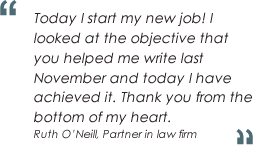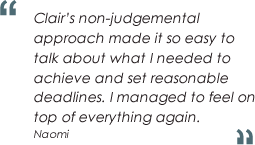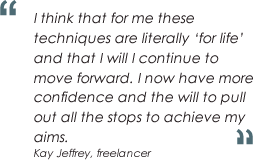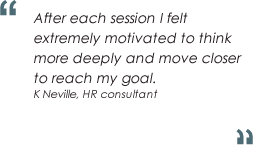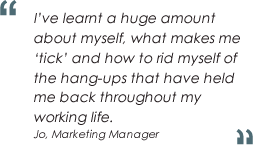How do you get a great job when 80% of jobs are never advertised?
Why is networking so important?
1. People do business with people they know and like - CVs and cover letters alone are often too impersonal to convince an employer to hire you.
2. Job adverts will attract lots of applications, immediately putting you in intense competition with many others.
3. The job you want may not be advertised at all. Networking can provide information and job leads often before a formal job description is created or a job announced.
4. Many companies are now looking for ways to save money and actively seeking word-of-mouth recommendations to cut down recruitment costs.
So what does a truly creative job search look like?
Word-of-mouth networking
The Six Degrees of Separation theory explores the premise that everyone in the world is connected to everyone else in the world by a chain of no more than six acquaintances. I have no idea whether this is true, but I'm often astounded by what a small world it is and how many of my seemingly unrelated friends and colleagues already know each other. Interestingly, when undertaking a creative job search, your key to success is often only two or three degrees of separation away from you - such as a friend of a friend, or a contact that knows an ex-colleague.
Frequently, when I suggest networking to my Career Coaching clients the first thing I hear is "I don't have any friends who could help" or "I don't feel comfortable asking friends for favours". So the first thing to remember is to make your approach a relaxed one - start building your personal network and see it as "creating new possibilities and having interesting conversations" rather than "finding a new job". You'll be amazed at how often some kind of opportunity comes out of an informal conversation. Just the other day one of my most "reluctant-to-network" coaching clients phoned me to say she'd managed to secure her ideal job working in school hours, from home, as a Business Development Manager for an events company run by her friend.
If you feel uncomfortable asking for favours, a great way of approaching this is to ask yourself "what can I offer them?" rather than "what can I get from this contact?" People are usually very happy to reciprocate when you have helped them in some way first.
Social media
Reconnect with old work colleagues and school friends - Facebook and LinkedIn are great for this as you don't need to have current email address in order to find people.
Some companies now recruit directly via job adverts on LinkedIn, so make sure you know how to search for a job. If you have a specific company you'd like to work for search for them on LinkedIn and see if there's anyone connected to you (first, second or third connections) that could introduce you to a relevant manager at that company.
Make sure your LinkedIn profile is compelling so that recruitment agencies doing a search for certain skills and experience will find you. Ask colleagues or clients to write strong recommendations for you on your profile - most employers check your LinkedIn profile before you arrive for an interview.
Short term contracts/voluntary work
Use short term contracts or voluntary roles to get more experience and expand your personal network. Anna* volunteered for a few hours a month at her local Children's Centre and then found herself the hot favourite for a new play-worker position, this worked from both sides: Anna was thrilled to have found a role that fitted around her children, and the Children's Centre was delighted to have found a new recruit that they already knew and trusted.
Think outside the box
Don't limit yourself to searching for only for part-time roles - some of the most successful women who work flexibly are those that are confident enough to apply for full-time roles and then agree part-time hours as part of their salary negotiations. Remember that an employer may well be delighted to get top talent for a lower salary. I have, for example, coached a top London solicitor who wanted to achieve partner level in a law firm. She had two young children and didn't think it would be possible to work four days a week. So she applied for full-time roles and when a law firm offered her a role she was interested in she managed to agree a four-day week as part of her terms and conditions.
Remember to complement your creative job search with traditional job-hunting methods such as speculative applications, replying to job adverts and building relationships with the most relevant recruitment agencies.
Finally, before you start any job search you need to be very clear on your direction. If you aren't, then an experienced career coach will be able to help you understand what motivates you at work, what skills you're naturally good at and what career paths will work for you and your lifestyle.
Now start working your network!
Look around you and make a list of just six people who admire you and would be happy to recommend you to others. This might be colleagues, friends or family - write their names in the boxes. Think in particular about those "match-making" people who are well-connected and naturally put people in touch with others. Then write a specific action you can take to connect with them, for example, "send a request to connect on LinkedIn tomorrow" or "phone for an informal chat about their company by Friday this week".
Share this Article
Comments

